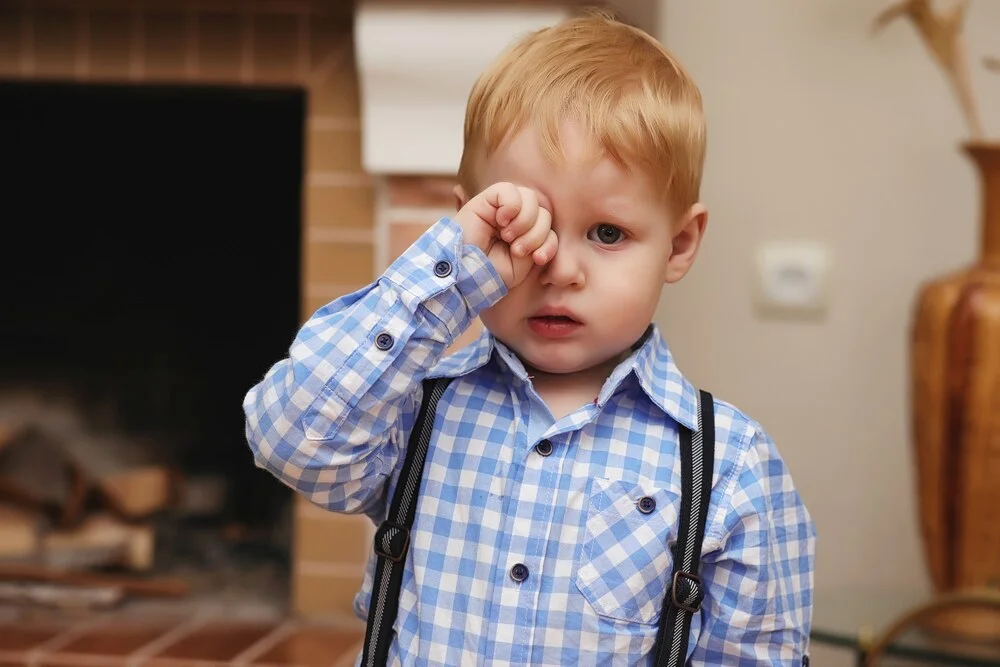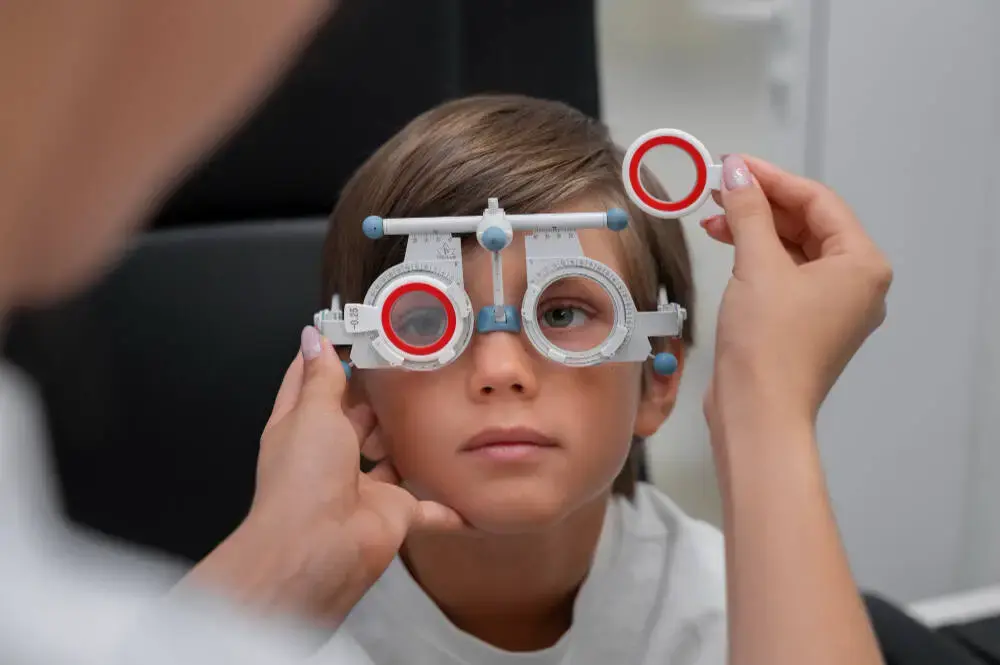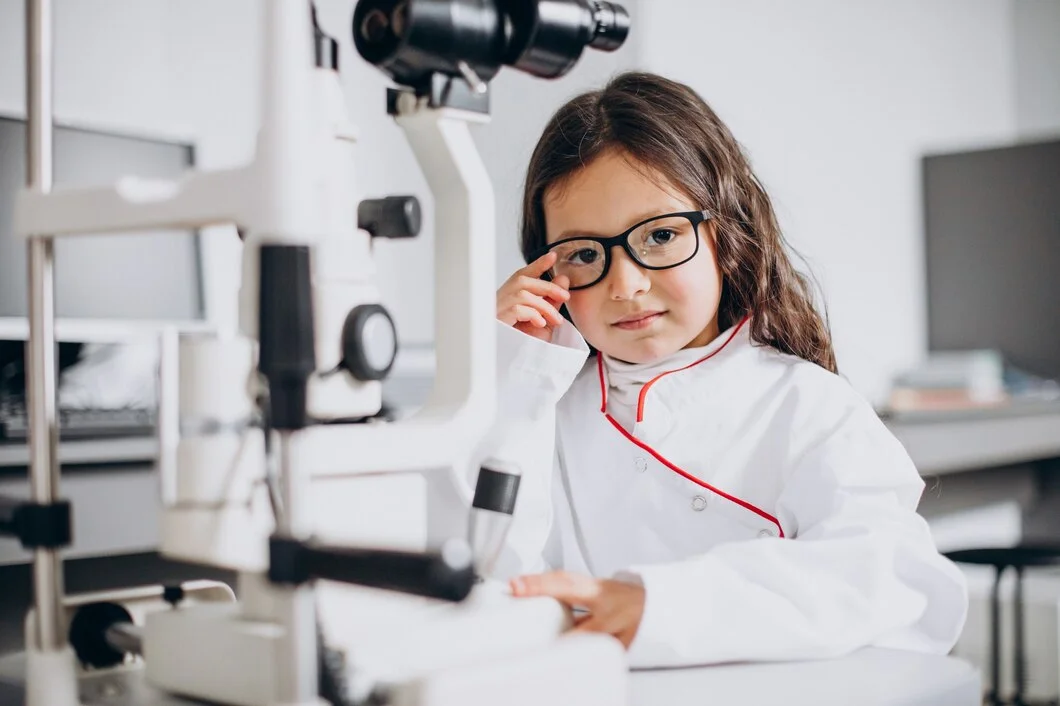Clear vision is critical to a child’s learning, development, and overall well-being. But not all childhood eye problems are easy to spot, especially young kids who may not know how to describe what they're experiencing.
At Elite Eye Care, we believe early detection is the key to managing both common and rare childhood eye problems before they impact your child’s education, safety, or quality of life.
n this guide, we’ll break down the most common childhood eye problems, how to recognize early signs of eye problem, and when to schedule a professional eye exam.

Spotting Common childhood eye problems
Some eye problems in children are benign or temporary, and some will cause significant and long-lasting harm if untreated. Here are the most common categories of eye problems in children:
- Amblyopia (Lazy Eye): A decrease in one eye's vision from chronic non-use.
- Strabismus: Misalignment of eyes (crossed eyes or wandering eyes).
- Refractive Errors: Near-sightedness, far-sightedness, astigmatism.
- Ptosis: Drooping of the upper eyelid.
- Blocked tear ducts: Very common in infants.
- Conjunctivitis (Pink Eye): Inflammation, usually from allergies, or from a viral or bacterial infection.
Identifying these childhood eye problems early helps prevent worsening vision and supports normal visual development.
Eye Problem Signs to Watch For
Kids rarely say, “I can’t see well.” Instead, they show it through behavior. Here are key eye problem signs and eyesight problem symptoms every parent should watch out for:
- Excessive squinting or tilting the head
- Frequent eye rubbing or blinking
- Difficulty recognizing people or objects at a distance
- Closing one eye to focus
- Holding books or screens very close
- Poor hand-eye coordination
- Complaints of headaches or tired eyes
These behaviors may signal an underlying eye vision problem symptom that needs professional attention.

Identifying Eye problem in infants
Identifying eye issues in babies may be more challenging because they cannot vocalize their visions or lack the ability to express themselves.
Look for early signs of eye problems in your baby:
- No eye contact or tracking of objects.
- Constant watering or discharge from the eye.
- Eyes which are misaligned, or do not work together.
- Eyes which are misaligned, or do not work together.
- Eyes fluttering or moving rapidly.
If any of these signs demonstrate themselves, consult an optometrist with pediatric experience as soon as possible.

When to Schedule an Eye Exam
The earlier vision problems are caught, the better. Here's a general guideline for when to schedule eye exams:
- At 6–12 months old: First baseline check
- At age 3: Full eye checkup test
- Before starting school: Comprehensive pediatric eye exam
- Annually after age 5: If no issues are detected
A routine eye check can reveal hidden childhood vision problems and ensure your child is ready to learn and play.

Why Routine Vision Screening Isn't Sufficient
Most schools and pediatricians offer vision screening which is useful for identifying obvious problems like severe nearsightedness. Although this does a pretty good job at identifying the severe problems, schools and pediatricians miss out on more subtle problems, like poor eye teaming and depth perception.
When Elite Eye Care conducts a complete pediatric vision testing appointment, it assesses the following areas and provides more than a basic eye check:
- Visual acuity testing
- Eye movement coordination
- Depth perception/focusing ability
- A health check of eye's internal structures
This comprehensive level of assessment will identify problems that basic tests may result in missing.

Eye Health Is a Lifelong Investment
Childhood eye problems aren’t just medical issues, they can affect confidence, learning ability, and social development. Parents play a key role in early detection of childhood eye conditions. Trust your instincts: if something seems off, book an exam. Timely eye checkup tests can make all the difference.
Worried about your child’s vision?
Schedule an eye exam with Elite Eye Care today. Our pediatric specialists provide thorough, gentle pediatric vision testing that’s tailored for children at every stage of development.

